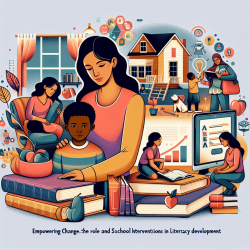Introduction
In the ever-evolving field of special education, understanding the complexities of Autism Spectrum Disorder (ASD) is crucial for educators and therapists alike. A recent research article, Neurobiology of Cognitive Abilities in Early Childhood Autism, provides valuable insights into the intricate relationship between cognitive abilities and ASD. This blog aims to distill the findings of this research to help practitioners enhance their skills and encourage further exploration in this vital area.
The Link Between IQ and Autism
The study highlights a significant correlation between low Intelligence Quotient (IQ) and ASD, particularly in early childhood. It reveals that approximately 37% of 8-year-olds and 48% of 4-year-olds diagnosed with ASD also have an Intellectual Disability, with an IQ below 70. Moreover, low IQ in infancy, even before the age of one, increases the likelihood of an ASD diagnosis by 40% in early childhood.
Understanding this connection is essential for practitioners as it underscores the importance of early identification and intervention. By recognizing the signs of low IQ early, educators and therapists can tailor their approaches to better support children at risk of developing ASD.
Critical Periods and Cognitive Development
The research also delves into the concept of critical periods during growth and development. These are times when the brain is particularly receptive to environmental influences, making early intervention crucial. For children with low IQ and ASD, these critical periods offer a window of opportunity to implement targeted therapies that can significantly impact their developmental trajectory.
Practitioners are encouraged to focus on these critical periods by providing enriched learning environments and personalized interventions. This approach not only aids in cognitive development but also helps mitigate some of the challenges associated with ASD.
Differentiating Early Low IQ from Speech Delay
One of the key distinctions made in the study is between early low IQ and speech delay. While both can be present in children with ASD, they have different implications for diagnosis and intervention. Early low IQ is characterized by impairments in both verbal and non-verbal domains, whereas speech delay primarily affects verbal communication.
For practitioners, this distinction is critical. It allows for more accurate assessments and the development of targeted intervention strategies. By understanding the unique needs of each child, educators and therapists can provide more effective support and improve outcomes for children with ASD.
Future Directions and Research Opportunities
The study identifies several gaps in current knowledge and suggests directions for future research. One area of interest is the formulation of new subtypes of autism, which could lead to more personalized and effective interventions. Additionally, understanding the distinct neurobiological underpinnings of early-diagnosed, lower-IQ autism cases compared to those diagnosed later offers exciting opportunities for further exploration.
Practitioners are encouraged to stay informed about the latest research developments and consider participating in studies that explore these new avenues. By contributing to the growing body of knowledge, educators and therapists can play a pivotal role in advancing the field of autism research and improving the lives of children with ASD.
Conclusion
The insights provided by the research on the neurobiology of cognitive abilities in early childhood autism are invaluable for practitioners. By understanding the link between IQ and ASD, recognizing critical periods for intervention, and distinguishing between early low IQ and speech delay, educators and therapists can enhance their skills and provide more effective support to children with ASD.
To read the original research paper, please follow this link: Neurobiology of cognitive abilities in early childhood autism.










